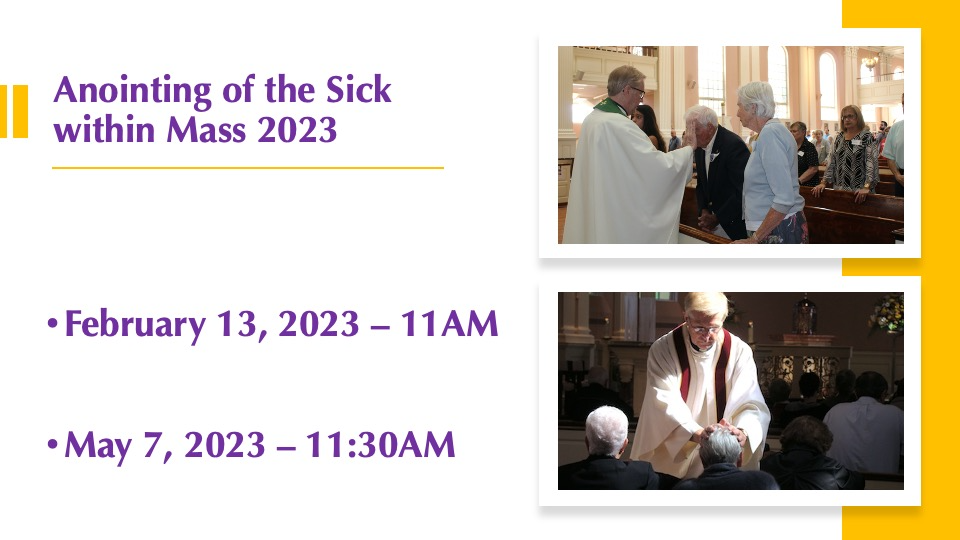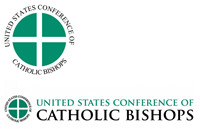
Anointing of the Sick at St. Rose of Lima
"Is anyone among you sick? He should summon the presbyters of the church, and they should pray over him and anoint (him) with oil in the name of the Lord, and the prayer of faith will save the sick person, and the Lord will raise him up. If he has committed any sins, he will be forgiven." - James 5:14-16
Human Sickness
Sickness and suffering are among the greatest challenges confronting the human spirit. In illness, we experience our limitations, our powerlessness, and our finiteness. Serious illness poses a crisis situation in the life of the one who is sick: on the one hand there is an opportunity for conversion, growth, and grace; on the other hand, sickness can be an occasion leading to anguish, self-absorption and despair.
Jesus' Ministry to the Sick
The Gospels recount Jesus' compassion toward the sick and his many healings of every kind of infirmity. His healing miracles are, furthermore, signs of the in-breaking Kingdom of God. They announce an even more radical healing: his triumph over sin and death through his paschal mystery. By his passion and death on the cross Christ has given a new meaning to suffering, which can henceforth configure us to him and unite us with his redemptive passion.
Church's Ministry to the Sick
The risen Lord continues his ministry of compassion to the sick in the church. He identifies himself with all who suffer. “I was sick and you visited me” (Mt 25: 36). The Church has received his charge to heal the sick (Mt 10:8) and strives to fulfill it by caring for the sick as well as by accompanying them with her prayer of intercession (CCC 1509).
Ministers to the Sick
“If one member suffers in the Body of Christ which is the Church, all the members suffer” (1 Cor. 12:26). All baptized Christians share in the ministry to the sick and dying by doing all they can to help the infirm return to health, by showing love for the sick, and by celebrating the sacraments with them (PC 33). Family and friends of the sick and those who take care of them have a special share in this ministry of heartfelt comfort and care. (PC 34) Priests and other pastoral ministers should make the faithful care and visitation of the sick one of their top priorities, while preparing them for a fruitful celebration of the sacraments. (Pastoral Care of the Sick, PC 35)
Ministry to the Sick and Elderly of St. Rose of Lima Parish
Ministry to the Sick is a pastoral ministry of caring for those people hospitalized, in nursing homes, or confined to private homes.
Viaticum: Holy Communion for the Dying is often translated as food for the journey. The Viaticum along with the sacrament of Penance, prepares a person for the final journey through death to everlasting life.
The Communal Celebration of the Sacrament of the Sick is celebrated at a Sunday Mass twice a year at SRL. Transportation to the celebration is provided if necessary.
Justin Ministry is ministry to the sick and homebound on Sunday. Every Sunday a team of ministers brings Eucharist to those who are unable to come to Church. They go to individual homes and to area nursing homes
How Often Can Someone Receive the Sacrament?
The sacrament may be repeated if the recipient suffers from a different illness or injury, or if the same illness or condition becomes more serious. Elderly people may be anointed if they have become weakened even though no serious illness is present.
How sick does someone have to be to receive the sacrament?
Anyone who is dangerously ill due to sickness, injury or old age may be anointed. The sacrament is for serious mental or emotional illness as well. The rite states clearly that a person should be anointed at the beginning of illness, or before surgery whenever a serious condition is the reason for the surgery. The anointing may be repeated if the same illness or condition becomes more serious.












